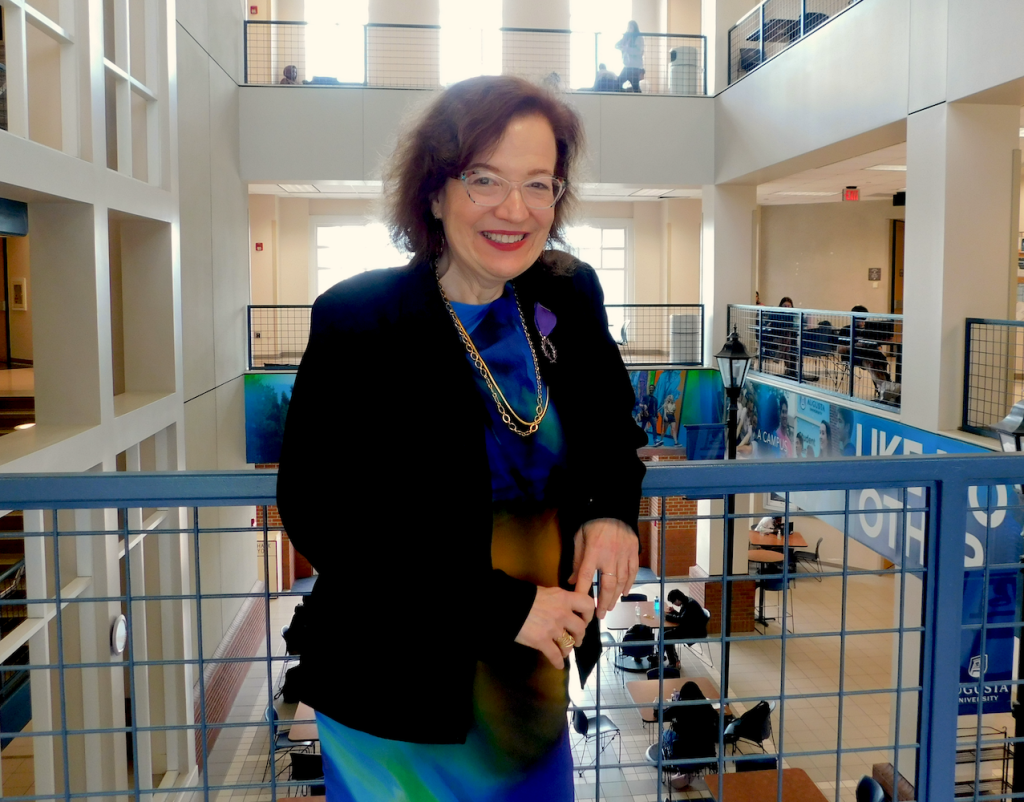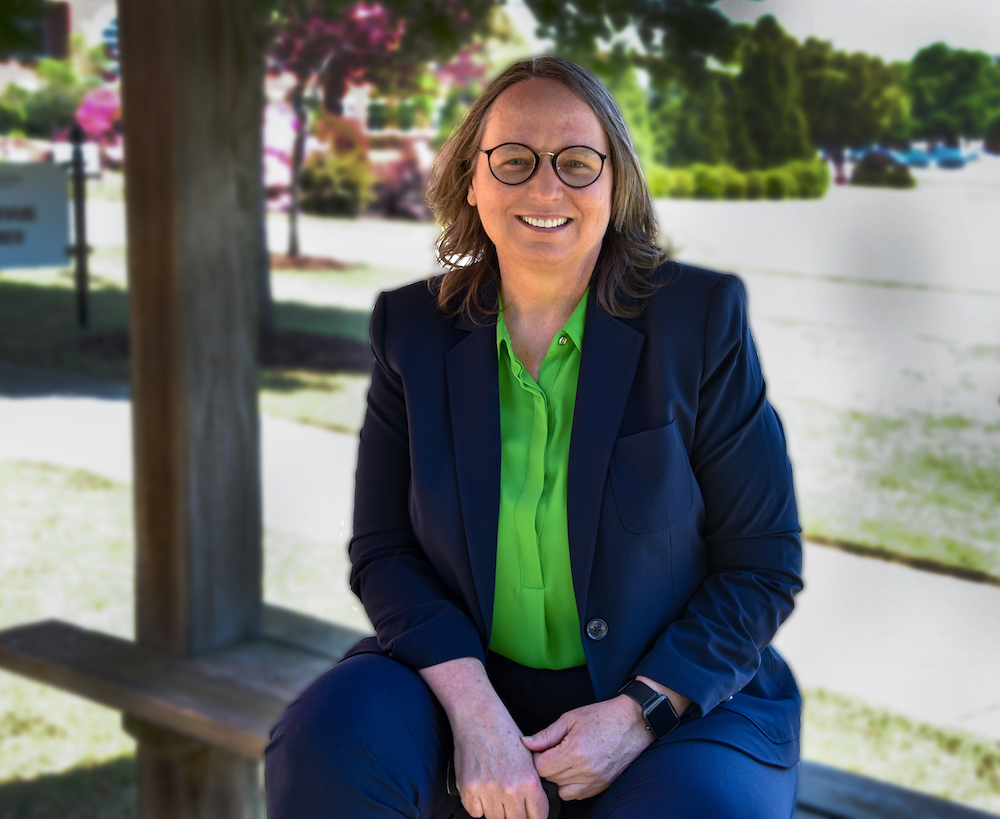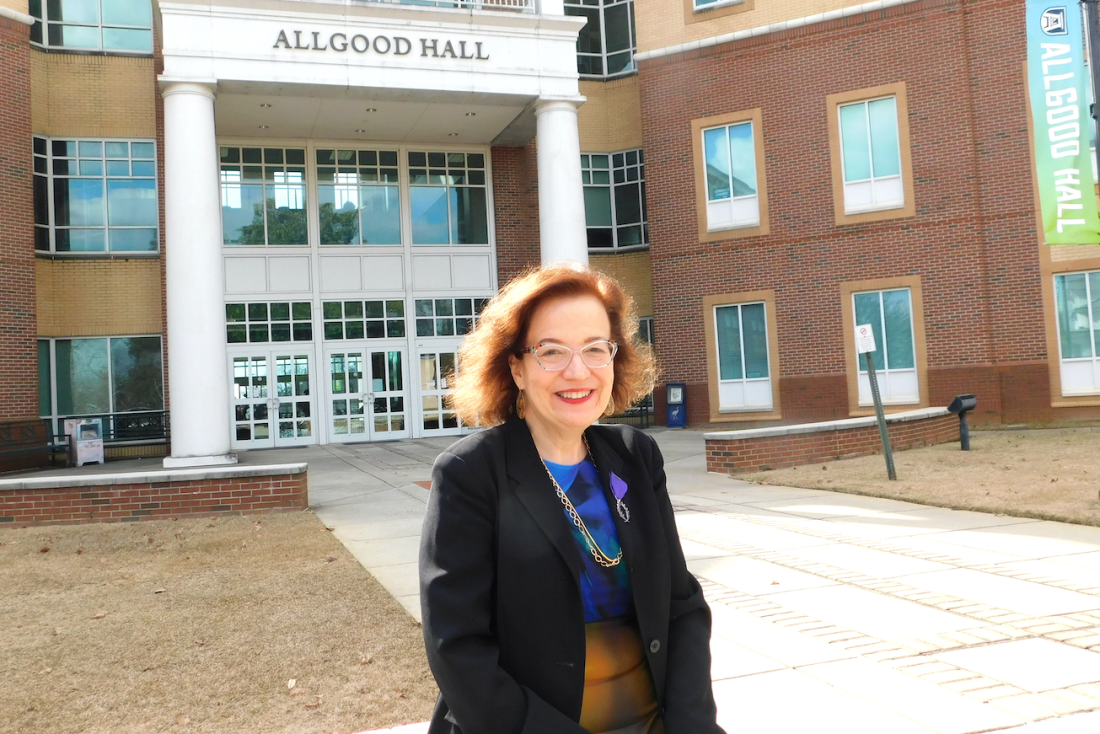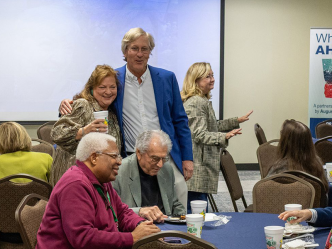French is spoken on every continent in the world and is the official language in 29 countries, such as France, Belgium, Canada, Luxembourg, Switzerland, Congo, Mali and Senegal, according to the United Nations.
Currently, there are more than 320 million French speakers worldwide, and that number is expected to reach 700 million, mostly in Africa, by 2050.
With French thriving around the world, it is increasingly becoming a language used by cyber attackers. Fortunately, the world has a new ally in the fight against these cyber threats in E. Nicole Meyer, PhD.
Late last year, Meyer, a professor of French at Augusta University, learned she was a 2022 recipient of Label FrancEducation accreditation and was awarded the prestigious Empowering French and Francophone Studies grant by the French Embassy of the United States.
“What I proposed was basically to integrate cyber science, information technology, cybersecurity and military security into the French program from French 1001, all the way through the four-semester program because, the fact is, French is the most useful world language outside of English for those fields.”
E. Nicole Meyer, PhD, a professor of French at Augusta University
With this $6,700 grant, Meyer will collaborate with faculty from the School of Computer and Cyber Sciences and the Master of Arts in Intelligence and Security Studies program at Augusta University to increase French enrollment through the infusion of cyber-related French materials and activities into its four-semester language sequence.
Meyer, who was appointed a chevalier, or knight, in the Ordre des Palmes Académiques by the Republic of France in 2021, also plans to design an upper-level cyber and French course that will be offered to students wanting to use French to fight cyber terrorism.
“The location of the Georgia Cyber Center here in Augusta will appeal to students’ desire to use French to combat cyber terrorism,” Meyer said. “This grant will permit me valuable time for training with cyber-related faculty, to invite compelling speakers and to access books and materials to further my goals. I believe this program will put Augusta University on the map and make us a role model for many other universities because this is the only French, cyber-related program like this in the United States.”

The French Embassy in the United States and the French-American Cultural Exchange (FACE) Foundation have joined forces to support innovation in French and Francophone Studies as part of their initiative to promote French in higher education.
On Thursday, Meyer will be recognized and honored as a recipient of the 2022 FACE grant at the Residence of the French Consulate in Atlanta.
According to the French Embassy and the FACE Foundation, Meyer’s proposal exemplified “how dynamic, resilient and useful learning French is today.”
“It is very prestigious to receive this grant, and I am so incredibly pleased with the support provided by my chair, Dr. Seretha Williams, as well as my dean, Dr. Kim Davies, and the Summerville Research office. This commitment was pivotal to receiving the grant,” Meyer said. “Pamplin College’s faculty, as well as many cyber faculty, shared syllabi to help me start my research into integrating useful knowledge into our French program. I am truly honored to receive this grant.”
Williams, chair of English and World Languages at Augusta University, said Meyer is committed to embracing interdisciplinary programs across the campus.
“Dr. Meyer is a champion of interdisciplinarity, and her work across disciplines, departments and schools models the type of collaboration the university needs,” Williams said.
Davies, dean of Pamplin College of Arts, Humanities and Social Sciences, said she admires Meyer’s drive to explore new programs that integrate French into the curriculum.
“Dr. Meyer continues to impress, and this time she has used her skills to bring faculty together for the unique but important French cyber program,” Davies said. “I look forward to learning from those she brings to campus.”

In 2022, only 14 universities in the United States received grants for projects ranging from the development of Diversity, Equity, and Inclusion-infused French curriculum to the integration of social justice practices in Francophone studies.
“This was a very competitive process because they wanted to fund quality projects,” Meyer said. “What I proposed was basically to integrate cyber science, information technology, cybersecurity and military security into the French program from French 1001, all the way through the four-semester program because, the fact is, French is the most useful world language outside of English for those fields.
“For instance, Fort Gordon is working very closely with the military cyber center in France to combat cyber terrorism,” she added. “So, by incorporating French with cyber sciences, our students will be ahead of the game. Because what I learned when I was working on this grant is, terrorists are recruiting strongly in French-speaking parts of Africa. Therefore, the military is looking for Americans who can speak French and can intercept these messages and communicate what is going on.”
With this grant, Meyer has teamed up with assistant professors Clement Aubert, PhD, and Edward Tremel, PhD, of the School of Computer and Cyber Sciences at Augusta University, to incorporate cyber sciences over the next two years into her French teachings.
“I’m also working with Dr. Craig Albert from the Master of Arts in Intelligence and Security Studies program here at Pamplin to explore how I might interest some of his students in our French courses,” Meyer said. “My approach to teaching French is I design each course around transferable skills.”
For example, Meyer currently teaches a course called “French for Specific Purposes: French for Health and Medical Purposes.”
“This grant absolutely falls under my concept of how to build transferable skills with a foreign language,” she said. “And I love the fact that I’m collaborating with faculty from the School of Computer and Cyber Sciences and the Department of Social Sciences to increase French enrollments through the infusion of cyber-related French curriculum.”
 Augusta University
Augusta University




